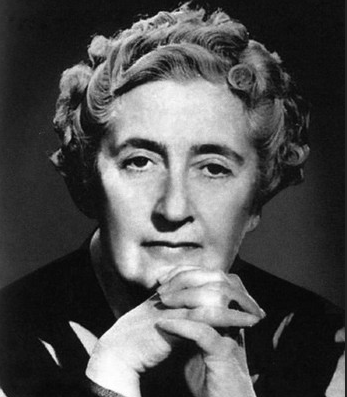
HarperCollins, the publishing house that handles the rights to Agatha Christie's books, has edited several of her novels to remove potentially offensive language, including references to ethnicity
and insulting descriptions. The changes were made in digital versions of the novels and were done by sensitivity readers to make the novels more palatable to modern audiences. The changes affected novels featuring Christie's detectives, Poirot and Miss Marple, that were written between 1920 and 1976.
According to The Telegraph, the edited versions of the novels removed descriptions of characters' ethnicity, including references to being black, Jewish, or Gypsy. The word "Oriental" and the N-word were also removed, and the term "natives" was replaced with the word "local." Insulting descriptions of women's bodies, such as a female character's torso being described as "of black marble," were also removed.
The edits were made to selected Poirot novels that have been released or will be released since 2020, as well as to the entire Miss Marple series. Among the changes made was a passage in the 1937 Poirot novel Death on the Nile, where the character Mrs. Allerton complains about a group of children, stating that "they come back and stare, and stare, and their eyes are simply disgusting, and so are their noses, and I don't believe I really like children." The edited version removes the description of the children's appearance and only states that "they come back and stare, and stare. And I don't believe I really like children."
The sensitivity readers who made the edits are a relatively new phenomenon in publishing. They vet new publications and older works for potentially offensive language and descriptions and aim to improve diversity in the publishing industry. The editing of Christie's novels is the first time the content of her works has been changed. However, her 1939 novel And Then There Were None was previously published under a different title that included a racist term, which was last used in 1977.
Other midcentury authors whose works have been revised include Roald Dahl and Ian Fleming. Dahl's publisher, Puffin, hired sensitivity readers to rewrite significant parts of the author's text to remove offensive descriptions of characters' physical appearances, such as the words "fat" and "ugly," as well as antisemitic references. Gender-neutral terms were also added. Ian Fleming's novels, featuring the British spy James Bond, have been reissued with a disclaimer that the books were written at a time when terms and attitudes that might be considered offensive by modern readers were commonplace.
The changes made to Agatha Christie's novels are part of a larger effort to make literature more inclusive and to address potentially offensive language and descriptions that were common in earlier works. While some may see this as an erasure of history, others view it as an opportunity to make literature more accessible to modern audiences and to create a more inclusive and diverse publishing industry. Photo: F l a n k e r, Wikimedia commons.






































